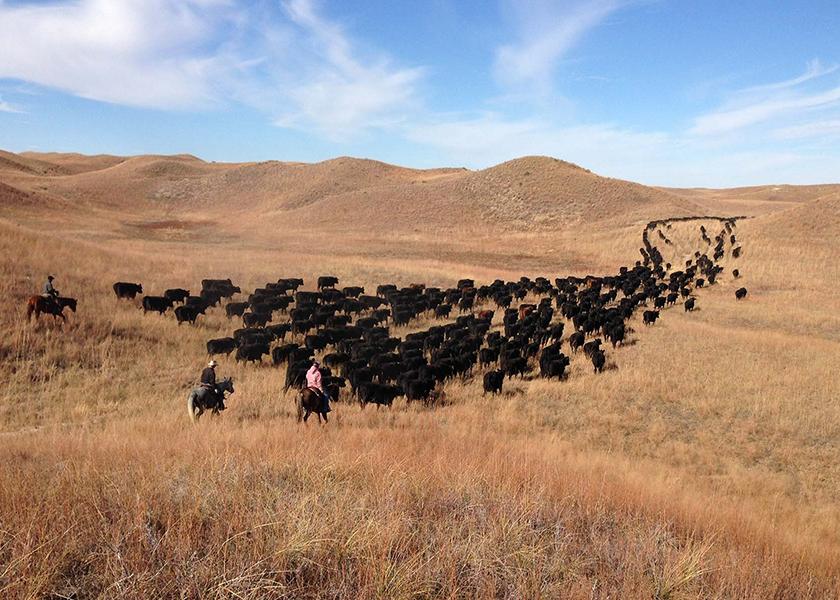Speer: The Tale of Cowlandia

Despite the country’s economic success, there had been some long-standing consternation regarding cattle imports. Seedstock breeders would sometimes import commercial cows to use as recipients in their embryo transfer programs. Additionally, some of the country’s backgrounders and feedlots regularly shipped in feeder cattle from other countries. None of that sat well with some producers. They continually griped about imports hampering Cowlandia’s cattle industry.
Eventually, one of the presidential candidates ran on a platform promising to restrict further imports of cattle. Once elected, true to his campaign promises, he declared a moratorium on imports. The implications were immediate.
First came calls from seedstock producers. Some of them had relied on coordinated supply channels – that was now being disrupted. And simultaneously, Cowlandia’s network of small feeders and grow yards were also grumbling – they were forced to establish new sources of feeder cattle. But the president would hear none of it; his response always being, “Cowlandia it should be.”
It didn’t take long for real economic impact to be realized further beyond those specific complaints. That is, retaliation from the country’s trade partners began to take effect. Most countries placed tariffs on cattle sourced from Cowlandia. Moreover, some countries further retaliated with non-tariff trade barriers (i.e. more stringent animal health requirements and paperwork).
With that, the longer-run fallout began to look like this:
- Cattle, semen and embryos from Cowlandia now had both direct and indirect tariffs. Demand quickly waned. The negative impact was subsequently felt within the country’s auction markets. Commercial producers were experiencing lower prices. And seedstock producers saw an immediate decline in values.
- The brouhaha also affected logistics. Finding trucks was hard enough; the new regulations made freight incrementally more difficult and expensive. Feeder cattle, seedstock cattle, and cull cows were regular export items out of the country. But now, because of the import moratorium there were no backhauls available back to Cowlandia. All that just compounded a growing backlog of feeder cattle supplies in the country (further hampering prices).
- Trade retaliation came in other forms, too. For example, some neighboring countries put tariffs on the Cowlandia’s sizeable exports of small grains (recall the country had vast resource of farm ground, too). Moreover, the country was also known as a prominent supplier of alfalfa hay; many countries now made it illegal to import hay products from Cowlandia.
- Subsequent capital investment in the cattle industry began to shrink. A wide variety of infrastructure entities (e.g. equipment dealers, farm stores, etc…) systematically reduced their presence in the country.
- Last, and perhaps most important, the restrictions also translated to declining land values. Cattle producers previously looking to move to, or expand, in Cowlandia opted to do so elsewhere.
The import restrictions closed Cowlandia’s cattle economy – and choked off the nation’s producers (and cattle infrastructure) from the plethora of opportunities previously available to them. Cowlandia’s story worsened from there, with a long list of unintended consequences, until it finally reversed its protectionist measures.
The reversal made all the difference. Business eventually got back to normal. Economic freedom (free markets inside and opportunity for free trade outside) resulted in everyone being better off – most especially, Cowlandia’s cattle producers.
“Most anti-globalists want two inconsistent things. [1] They want immunity from the forces of economic change and [2] they want the goods and services that market capitalism makes possible. They cannot have both.”
Don Boudreaux: Globalization (c 2007)
Nevil Speer is an independent consultant based in Bowling Green, KY. The views and opinions expressed herein do not reflect, nor are associated with in any manner, any client or business relationship. He can be reached at nevil.speer@turkeytrack.biz.







